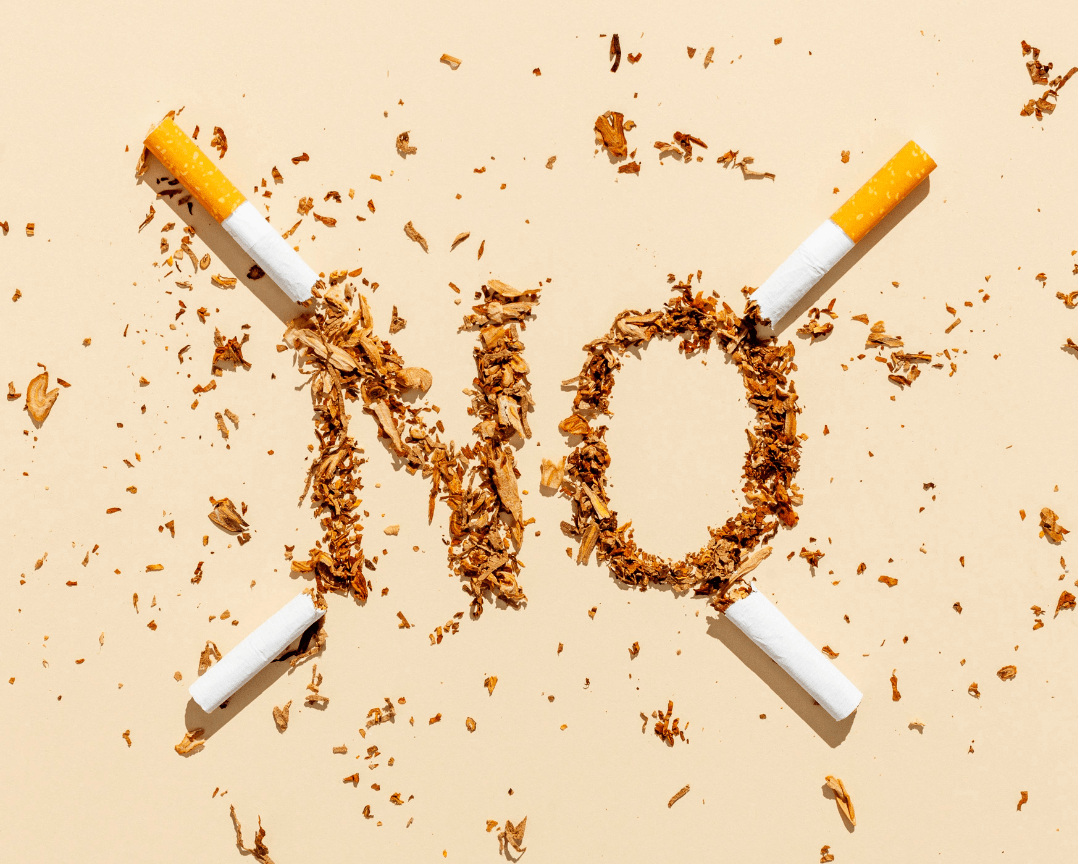Effects of Tobacco use on Oral Health: Tobacco and Dental Health
More tobacco is consumed and produced in China than everywhere else in the world. According to data from the ABS National Health Survey, 22.3% of adults smoked every day in 2001. In 2020–21, the daily smoking rate among Australian adults was 10.7%.
Most individuals are aware of the harmful effects of smoking on their health. Several articles have been written regarding how smoking affects one’s health. The impacts of cigarettes on our dental health will be discussed here. The following are a few of the common oral health problems:
-
Bad Breath
Smokers’ breath, also known as stale smoke, is caused by smoke particles that remain in the mouth for a while after a cigarette is smoked. Saliva production is also lowered by chewing or smoking tobacco. Bacteria thrive in a dry mouth, which contributes to bad breath.
-
Tooth Discoloration
Your teeth can quickly absorb nicotine. Despite being colorless, nicotine interacts with oxygen to turn teeth from white to yellow. When someone chews tobacco, nicotine, and saliva combine to generate a dark brown liquid that, if left in the mouth for a long time, can discolor the enamel.
-
Gum Disease
Chewing tobacco or smoking has an impact on how firmly the gums adhere to the teeth. This is due to the plaque that forms close to the gum line interfering with the cells of the gum tissue, which weakens your immune system and makes it more difficult for your body to fight off infections. Because nicotine lowers the blood flow to your gums, you are more likely to get oral infections. The symptoms of dry mouth are exacerbated by particles in the mouth, which also create the ideal conditions for bacteria to flourish and inflame the mouth. Gum recession and oral bone structure are both impacted by tobacco usage. These elements may raise your risk of developing a jawbone infection, which can result in tooth loss.
Lowered Success Rate of Dental Implants
Dental implants are an example of a cosmetic operation that depends on having enough healthy bone to sustain the teeth. Since the immune system is weakened in smokers and tobacco users, the healing process takes longer than usual. The same holds true if a tooth is pulled out or if oral surgery is done. The period for healing is postponed.
Increased Chances of Developing Oral Cancer
80% to 90% of oral cancer cases with a confirmed cause are caused by tobacco use. Therefore, the primary reason you should stop smoking or chewing tobacco is mouth/jaw cancer. Despite the fact that smoking has numerous other negative health effects, cancer remains the most serious of these. Tobacco enters your mouth through the glands there and is quickly filtered into the tissues of your mouth. Regular tobacco use causes the body to absorb and filter tobacco constantly, which opens the door to the emergence of mouth cancer.
How can you prevent developing these oral health problems? Merely stopping smoking or chewing tobacco is the simple solution. Here is how to break this habit:
-
Make a Plan to Quit the Habit
You must have a strategy in place because it is simpler to stay motivated and focused to quit when you have a strategy at hand. You can create your own strategy or seek online for a suitable quit plan.
-
Stay Busy
Being busy is a terrific method to occupy and divert your mind. You should attempt the following actions to keep busy:
- Exercise
- With non-smoking friends and family, watch a movie or have dinner.
- Walk
- Chew gum
- Take deep breaths
- Drink lots of water
-
Stay Away from Triggers
Your triggers are the people, things, places, and circumstances that cause you to give in to the want to smoke. Here are some suggestions for avoiding triggers:
- Remove anything that even the slightest bit makes you think of tobacco, including cigarettes, lighters, and ashtrays
- Caffeine can make you jittery. Avoid it, try drinking water instead.
- Rest well and eat healthily
-
Stay Positive
Quitting doesn’t occur overnight. The greatest strategy is to take each day as it comes. Most crucial, keep an optimistic outlook. First, get your mind ready to give up. Decide on a date and keep it.
It can be challenging to rely purely on willpower at times. Invite your family and friends in. Request their support for your decision to resign. Tell them what kind of assistance you will require from them. When you are going through a difficult time, they can be strong support.
If you’ve been smoking or chewing tobacco, it’s time to visit the best dentist in Adelaide to get a full analysis of your dental health and determine the issues that have affected your teeth and gums. Schedule an appointment with a Dentist to get the best result






